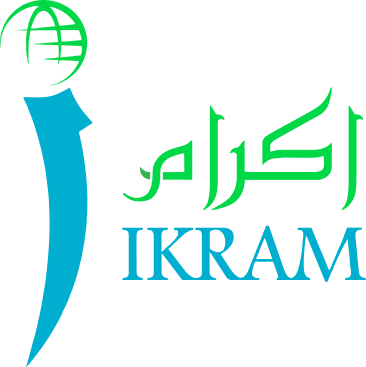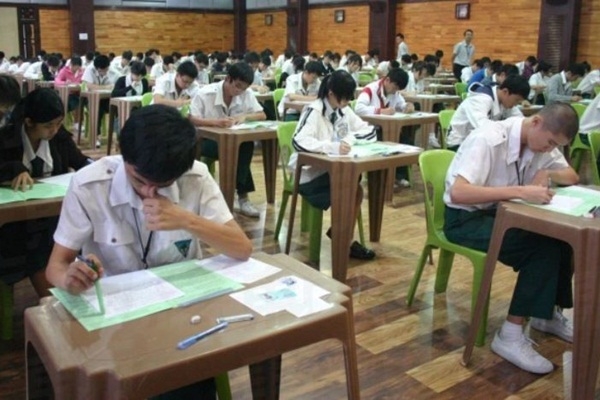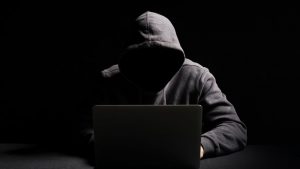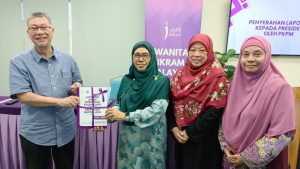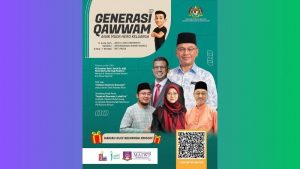1. WHAT IS THE UEC?
The Unified Examination Certificate (UEC) is a certificate for Chinese Independent High School (better known as Sekolah Menengah Persendirian Cina, or SMPC) students in Malaysia. It is a secondary school exam qualification that has been administered by the United Chinese School Committees Association (Dong Zong) since 1975. SMPCs accept students from various races and religions, including Malays.
2. WHAT ARE SMPCs? WHY DO THEY EXIST?
2.1. The Chinese in Malaya (now part of modern Malaysia) first founded their own schools in the early 20th century. In the early 1960s, following the Rahman Talib Report and the Education Act 1961, these schools were offered full government support provided that they switch to the national curriculum.
All primary SMPCs and many secondary SMPCs accepted this offer. A few of the latter category refused, as they wanted to retain their autonomy.
2.2 Schools that accepted the offer are now known as Sekolah Rendah Jenis Kebangsaan (Cina), or SRJK(C)s and Sekolah Menengah Jenis Kebangsaan (Cina), SMJK(C)s, while those that refused came to be known as SMPCs.
2.3 Early on, there were 60 SMPCs in Malaysia and no new schools have been allowed establishment since then. They are all managed by Dong Zong.
2.4 It is worth mentioning that the same offer was made to Tamil Primary Schools, all of which were changed to Sekolah Rendah Jenis Kebangsaan (Tamil), or SRJK(T)s. However, Tamil secondary schools have never existed. Therefore, there are no Sekolah Menengah Jenis Kebangsaan (Tamil) and Sekolah Menengah Persendirian India/Tamil, nor are there special exams akin to the UEC for students in Tamil.
3. WHAT IS THE DIFFERENCE BETWEEN SPMCs, SMJKCs, AND SRJKCs?
3.1. An SMPC operates as a fully private school. The school does not receive any assistance from the Government, does not carry out the national curriculum, and does not subscribe to Malaysian public examinations. However, SMJKCs and SRJKCs are similar to government-supported religious schools (Sekolah Agama Bantuan Kerajaan, or SABKs), which carry the national curriculum. These schools receive funds, teachers, and the like from the government.
4. HOW MANY STUDENTS SIT FOR THE UEC?
4.1. In 2015, about six thousand students took the UEC examinations.
(Source: IKRAM-Dong Zong roundtable meeting, July 14th 2018)
5. DO ALL STUDENTS IN CHINESE SCHOOLS SIT FOR THE UEC?
5.1. No. The UEC is only taken by students of SMPCs.
5.2. At present, only 15% of Chinese secondary school students study in SMPCs and sit for the UEC due to its high cost and limited places. The rest study in national secondary schools (Sekolah Menengah Kebangsaan, or SMKs) and SMKJ(C)s.
(Source: IKRAM-Dong Zong roundtable meeting, July 14th 2018)
6. IS IT TRUE THAT THE UEC SYLLABUS IS TAKEN FROM TAIWAN?
6.1. Although the curriculum at the beginning of the establishment of Chinese schools in Malaysia was from China and Taiwan, the SMPC/UEC curriculum was subsequently changed to suit the Malaysian context. At present, no part of the UEC curriculum has been taken from other countries, and all curriculum drafters are Malaysians.
(Source: IKRAM-Dong Zong roundtable meeting, July 14th 2018)
7. DOES THE UEC CURRICULUM ACHIEVE THE SAME ACADEMIC STANDARDS AS THE SIJIL TINGGI PELAJARAN MALAYSIA (STPM) OR A-LEVELS?
7.1. Many international universities and Private Institutions of Higher Learning (IPTSs) in Malaysia accept students with a UEC qualification by acknowledging them as equivalent to STPM or A levels.
7.2. Since the UEC has been recognized by more than 200 Institutes of Higher Learning worldwide, including most Malaysian IPTSs, it is presumed that its academic standards are fit for purpose.
(Source: IKRAM-Dong Zong roundtable meeting, July 14th 2018)
8. IF IT IS FIT FOR PURPOSE, WHY ARE THERE PARTIES OPPOSING IT?
8.1. Most parties who dispute the UEC do not dispute its academic standards. The academic standards of the UEC subjects (except Bahasa Malaysia and History) are not the reason for opposition.
8.2. The main concern regarding the UEC involves the development of a “Malaysian identity” and the extent to which UEC leavers meet the aspirations of the National Education Philosophy, including command of Bahasa Malaysia, the understanding of Malaysian history, and the spirit of Malaysian patriotism.
9. WHAT ARE THE OPPOSING PARTIES’ MAIN CONCERNS?
The following comments are extracted from open discussions on the UEC, including those on social media, and reflect some of the lay public’s concerns:
9.1. “(The exam) violates the provisions of the Education Act 1996 (Act 55), which maintains the current status of SMPCs and the UEC.”
9.2. “Chinese Private Schools have failed to produce students who are able to demonstrate a strong national identity.”
9.3. “(The UEC results in) failure to support the concept of the Malay culture as the core culture in the development of Malaysia (as agreed in the nation’s founding social contract), including the emphasis on Bahasa Malaysia.”
9.4. “Chinese school-leavers can only speak Mandarin and only exhibit ethnic Chinese identity, not a Malaysian national identity.”
9.5. “(SMPC students are) not fluent in Bahasa Malaysia. It is as if they are foreigners in this country.”
9.6. “(The UEC) challenges the position of Bahasa Malaysia as the national language with the existence of people who are unable to speak it, (against what is enshrined in) the Federal Constitution and the National Language Act.”
9.7. “If the UEC is recognized, other qualifications such as A-levels, the Baccalaureate, and the like will also follow and eventually adversely affect our education system.”
9.8. “It produces future Chinese generations with different aspirations and identity from other races, which hinders unity.”
9.9. “Making SMPCs more popular and lowering the number of Chinese students to SMKs and SMJK(C)s.”
9.10. “It is not fair to parents who have been loyal to the SMK/SMJK(C) education system.”
9.11. “Recognition will make the education system in SMPCs a part of the National Education system.”
9.12. “It can create a conflicting two-education system in terms of philosophy and aspiration.”
10. IS THE RECOGNITION OF THE UEC INCLUDED IN THE PAKATAN HARAPAN MANIFESTO?
The following is an excerpt from the Pakatan Harapan Manifesto:
“…Pakatan Harapan will undertake to recognise UEC certificates to enter public institutions of higher learning (IPTA) provided that applicants have a credit in Bahasa Melayu at the SPM level. For this purpose, the UEC certificate will be assessed to be equivalent to the existing general qualification for entry into IPTA…”
(Pledge 50 of the English version of the Pakatan Harapan Manifesto, page 107)
11. IS IT INCLUDED IN PH’S 100-DAY PLEDGE?
No. The phrase used was “…sijil UEC akan dinilai…” (the UEC will be evaluated), which brings the connotation that it would be reviewed; such reviews take time.
12. WHAT IS THE BARISAN NASIONAL MANIFESTO’S EVALUATION WITH REGARDS TO THE RECOGNITION OF THE UEC?
“…Qualified citizens with overseas examination certificates that are equivalent to Sijil Pelajaran Malaysia (SPM) and Sijil Tinggi Persekolahan Malaysia (STPM) will be considered for enrolment in higher education institutions (HEI), under the condition that they obtain a credit in Bahasa Malaysia and a pass in History. This criterion also applies to issues pertaining to the Unified Examination Certificate Senior Middle (UEC)…”
(Barisan Nasional Manifesto, page 85)
13. IN SUMMARY, WHAT ARE THE SUGGESTIONS AND DEMANDS OF VARIOUS PARTIES WITH REGARDS TO THIS ISSUE?
13.1 There are many parties who have brought forward stances with regards to the UEC issue, as summarised below:
a) Recognise the UEC with no conditions;
b) Recognise the UEC on condition that a credit in the SPM Bahasa Malaysia paper is achieved;
c) Recognise the UEC on condition that a credit in the SPM Bahasa Malaysia paper and a pass in the SPM History paper are achieved;
d) Recognise the UEC after altering its curriculum to align with the objectives of the National Education Philosophy;
e) Do not recognise the UEC and maintain the status quo;
f) Change all SMPCs to SMJK(C)s; or
g) Abolish the SJK(C), SMJK(C), SMPC, and UEC systems.
14. DOES IKRAM SUPPORT RECOGNISING THE UEC?
14.1. IKRAM supports the Ministry of Education’s stance that welcomes multiple streams or approaches to education as long as they are based on the National Education Philosophy.
14.2. Chinese education has existed in the country for over 100 years. The Education Act 1996 has given validation to its existence; consequently, it is not against the law.
14.3. However, students in the vernacular education system, notably from SMPCs in Malaysia, seem to exist in their own separate sphere, as they rarely socialise with other races. Upon completion of the UEC examination, they pursue their education abroad in countries such as Singapore, China, and Taiwan (and several local private universities), as they are not allowed to enrol in local universities.
14.4. After the students graduate and return to Malaysia, they are unable to enter the civil service or government agencies as their qualifications are not recognised.
14.5. Therefore, most of these students end up working in private companies. If these companies lack ethnic diversity, they will have fewer interactions and opportunities to get to know and understand Muslims and the Malays, who are the majority in this country.
14.6. This is how the gap between races persists from one generation to another, and in fact, might become worse. It might lead to higher levels of prejudice and suspicion and diminish tolerance between races.
14.7. In order to prevent this from occurring, IKRAM has proposed that they should be encouraged to assimilate and mix with other Malaysians through the education system.
14.8. One of the means of assimilation is to abolish the vernacular education system, which would make Malaysia’s education system similar to that of Indonesia, Singapore, and Thailand, which practice a “one people, one education system” approach. This is easier said than done. The Chinese education system in Malaysia has been around since the early 20th century and has been allowed to exist both before and after independence.
14.9. Attempts to change the system and/or position of Chinese schools in Malaysia have frequently become big issues for the Malaysian Chinese as they are concerned that their language and culture may fade away. Muslims similarly must be wary of movements that promote a single education system, as these movements also seek to eliminate other systems such as the pondok and tahfiz systems.
14.10. Therefore, IKRAM believes that the best way to address this issue is to accommodate them in our society, including allowing them to enrol in local universities, as this will give them the opportunity to assimilate and integrate. This will allow them to interact with other races in Malaysia.
14.11. We need to find a way to recognise this parallel system (with a few conditions included), as we are unable to abolish the vernacular system. But at the same time, we cannot allow these students to remain isolated from the rest of Malaysian society.
14.12. The conditions attached to recognising the UEC need to take into account the concerns raised by society as mentioned in Section 9 of this article.
15. WHAT ARE THE CONDITIONS THAT IKRAM SUGGEST, AND WHY?
15.1 For the UEC to be recognised by the Ministry of Education (MOE), and in doing so allow UEC certificate holders to enrol in public universities, the minimum conditions suggested are a credit in Bahasa Malaysia and a pass in History in the SPM exams. Furthermore, the UEC curriculum must undergo standardisation/accreditation processes by the Ministry of Education (MOE).
15.2 These are the four reasons why the aforementioned conditions are required:
i. The language of instruction in all SMPCs is Mandarin. Bahasa Malaysia is taught as part of the curriculum, but the standard and learning hours are lower than the national standard. Most UEC students are not fluent in Malay, as the language of communication between them is Mandarin (or other Chinese dialects/languages). The requirement to achieve at least a credit in Bahasa Melayu in the SPM exams will encourage them to improve their listening, reading, and speaking skills in the language.
ii. The History syllabus as taught in SMPCs is different than what is currently taught in the Secondary School Standard Syllabus (KSSM). A person’s understanding of history plays an important role in building the mind-set and attitude towards certain events in the country’s history, including instilling patriotic values and spirit. In addition, civic values and citizenship are now core elements in the national History syllabus. It is of utmost importance for UEC students to fully understand Malaysia’s history.
iii. At present, STPM (or equivalent) certificate holders are only accepted into public universities if they hold SPM certificates. Naturally, UEC students will also require SPM qualifications. The minimum requirements for passing the SPM are a credit in Bahasa Malaysia and a pass in History.
iv. These SPM requirements are the same as for other Malaysian citizens having foreign high school certificates such as A-Levels, International Baccalaureate (IB), and private University Diploma holders who wish to further their studies in Malaysian public universities.
15.3 IKRAM suggests all solutions discussed to be only applicable to the 60 SMPCs with an established history and legacy. The Ministry of Education should be firm and not allow any additional SMPCs.
The Ministry of Education also should not allow students who are not studying in SMPCs to sit for the UEC examination.
16. WHAT ARE CONDITIONS THAT DONG ZONG HAS AGREED TO?
16.1 Dong Zong agrees with making a credit in the SPM Bahasa Malaysia exam a condition for allowing the UEC to be used to gain entrance to public universities in Malaysia.
16.2 Dong Zong also agrees to improve the teaching of Bahasa Malaysia in SMPCs. The Ministry of Education and Dewan Bahasa dan Pustaka (DBP) need to provide them support in this matter.
17. HOW DOES ALLOWING UEC LEAVERS TO ENROL IN PUBLIC UNIVERSITIES CONTRIBUTE TO NATIONAL UNITY?
17.1 As the language of instruction used in public universities is Bahasa Malaysia, the implementation of this policy will encourage UEC graduates to improve their fluency in the language.
17.2 All public university students must take and pass a few compulsory general subjects: Malaysian Studies, Islamic and Asian Civilisation, and Ethnic Relations, all of which are standardised by the MOE. This will enhance students’ understanding of Malaysia’s history, ethnic relations, national identity, and its system of government.
17.3 This will give them the opportunity to interact with individuals of different races, religions, and cultures and help to reduce the gap between them, in addition to establishing friendships. This will also help in their assimilation into society.
The above may not be achieved if the students do not enrol in public universities, what more if they further their studies overseas.
18. WHY HAS THIS ISSUE BECOME HEATED?
18.1 It is in the interest of certain irresponsible parties to politicise the issue when it is a real concern that requires serious attention in the spirit of building the nation and the future of its upcoming generation.
18.2 A few parties have made unrealistic demands without considering the cultural differences, social contract, and main policies that had been agreed upon in the past.
19. WHAT IS THE BEST WAY TO MANAGE THIS PROBLEM?
19.1 Discussions and dialogues held in a controlled manner, with the objective of finding common ground instead of highlighting differences, should be encouraged. We believe that in such a highly charged environment, closed sessions involving all stakeholders are better than open sessions.
19.2 IKRAM would like to express its readiness to organise such meetings in a calm environment to help defuse the tension and achieve a consensus on this issue.
20. MOVING FORWARD
20.1 The decision whether to conditionally recognise the UEC or not should be based on academics and professional consideration at the level of the Ministry of Education instead of political pressure.
20.2 The decision should not be rushed as it requires a holistic approach and comprehensive review by the stakeholders.
20.3 The Ministry of Education, Chinese education non-governmental organisations (NGOs), and Malay-Muslim NGOs need to analyse and look for a comprehensive and harmonious solution to this issue.
20.4 In celebrating the diversity of educational systems in Malaysia, all parties must move forward towards realising the aspirations of the National Education Philosophy.
20.5 Learning and co-curricular activities that help with racial integration and improving the command of Bahasa Malaysia need to be increased, especially in SMPCs/SRJKCs/SMJKCs and schools of other streams. Cross-cultural activities that have been proven to work in certain schools (including those within the IKRAM-MUSLEH system) should be used as examples.
20.6 All parties need to compromise and prioritise the common good in building a national culture and ethic that is compassionate (rahmah) and harmonious.
PREPARED BY:
EDUCATION COMMITTEE
PERTUBUHAN IKRAM MALAYSIA
July 24th, 2018
This translation of IKRAM’s statement, originally in Bahasa Melayu, was provided by Pedants, an IKRAM youth English interest group.
Bahasa Melayu version link: https://ikram.org.my/berita/kenyataan-media/item/3507-uec-dari-pandangan-ikram.html
